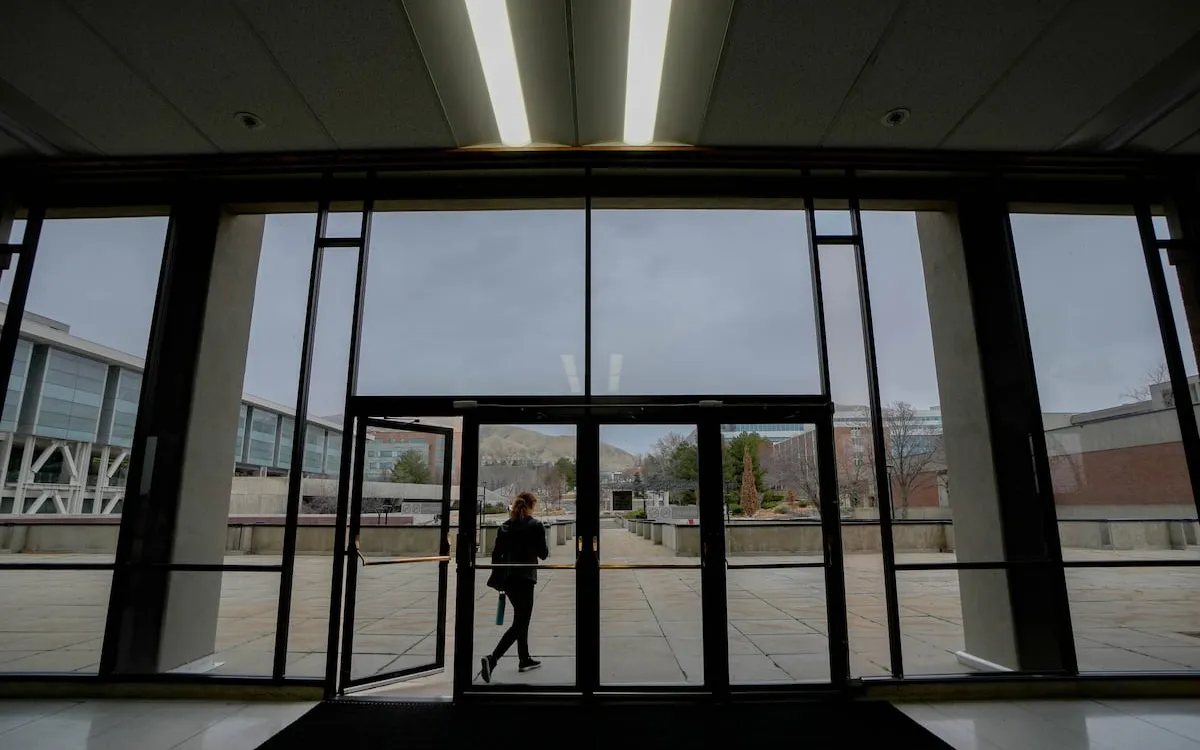
In a startling development, at least 17 international students and recent graduates at the University of Utah have received notifications from the Trump administration indicating that their visas have been revoked. These students were instructed to immediately “self-deport.” This alarming news was disclosed by the university on Tuesday, marking the first public acknowledgment of the visa revocations, which reportedly began early last week and extended through the weekend, generating widespread confusion and fear among the student body.
The University of Utah is witnessing one of the largest visa revocation tallies for a single institution since the federal government initiated its nationwide efforts to terminate the legal residency status of international students. In addition to the U., Weber State University has confirmed that five of its students have also had their visas revoked, while Snow College reported two cases. In total, approximately 300 visas for international students across the country have been terminated, according to U.S. Secretary of State Marco Rubio.
A letter obtained by The Salt Lake Tribune reveals the gravity of the situation. It states, “Remaining in the United States without a lawful immigration status can result in fines, detention, and/or deportation. It may also make you ineligible for a future U.S. visa.” The letter further warns that deportations could happen without allowing students to secure their possessions or conclude their affairs in the U.S. Moreover, it advises students to consider voluntary departure and to reapply for a visa later.
As of late Tuesday, the University of Utah, Weber State, and Snow College reported a total of 24 impacted students in Utah. Notably, approximately half of the affected students at the U. are from China, with others hailing from regions in the Middle East and Southeast Asia. Among the impacted individuals are freshmen and recent graduates holding F-1 visas. The University of Utah has the highest enrollment of international students—3,138 this past fall—making up 9% of its total student population. This is attributed to the university’s global recruitment for its prestigious medical and research programs.
Inquiries made to Utah's two primary private institutions, Brigham Young University and Westminster University, yielded different responses. While BYU did not provide immediate comments, a spokesperson for Westminster confirmed that they are in contact with their international students and, to their knowledge, none have faced visa revocation. Overall, there are over 9,000 international students across Utah's 10 main public and private higher education institutions.
The students affected at the University of Utah include a mix of undergraduate and graduate students, with a total of 3,733 students potentially impacted. The university has not reported any cases involving employed scholars or researchers whose J-1 visas have been revoked. Most of the students whose visas were terminated do not have criminal records; some have minor traffic violations. However, there has been no clear explanation for the revocations, with some letters citing “otherwise failing to maintain status” as the reason.
The Trump administration has been under scrutiny for targeting students who participated in pro-Palestine protests last spring. An incident involving the detention of a Columbia University student, who was a green card holder and a protest leader, has raised concerns about the motivations behind the visa revocations. At the University of Utah, no cases appear to be connected to protests that occurred on campus last April, which led to police intervention and multiple arrests.
The International Student and Scholar Services office at the University of Utah is proactively reaching out to each affected student to offer support. They have also disseminated resources to all international students, including guidelines on maintaining legal status and access to legal assistance. The office emphasizes its commitment to keeping students informed and supported during these uncertain times.
Students are encouraged to carry copies of their I-94 records, visa documentation, and passport stamps at all times. Furthermore, the university advises against international travel unless absolutely necessary due to the potential for sudden policy changes that could affect re-entry into the United States. Counseling services have also been made available for students experiencing distress due to the current situation.
As students across the nation face similar challenges, a group at the University of Utah, known as Mecha, has organized to advocate for the university to become a “sanctuary campus,” preventing immigration officers from operating on school grounds. The accompanying petition has already garnered more than 1,000 signatures, highlighting the urgent need for solidarity and support for international students during this tumultuous period.